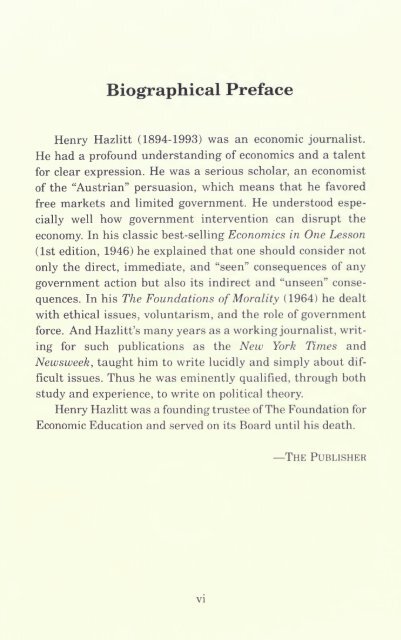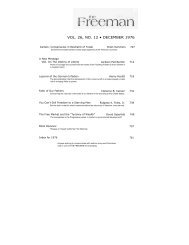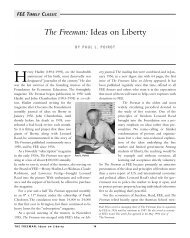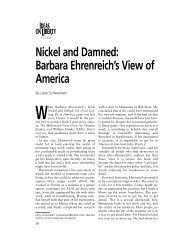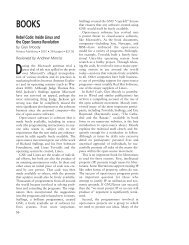Is Politics Insoluble?
Is Politics Insoluble?
Is Politics Insoluble?
You also want an ePaper? Increase the reach of your titles
YUMPU automatically turns print PDFs into web optimized ePapers that Google loves.
Biographical Preface<br />
Henry Hazlitt (1894-1993) was an economic journalist.<br />
He had a profound understanding of economics and a talent<br />
for clear expression. He was a serious scholar, an economist<br />
of the "Austrian" persuasion, which means that he favored<br />
free markets and limited government. He understood espe-<br />
cially well how government intervention can disrupt the<br />
economy. In his classic best-selling Economics in One Lesson<br />
(1st edition, 1946) he explained that one should consider not<br />
only the direct, immediate, and "seen" consequences of any<br />
government action but also its indirect and "unseen" conse-<br />
quences. In his The Foundations of Morality (1964) he dealt<br />
with ethical issues, voluntarism, and the role of government<br />
force. And Hazlitt's many years as a working journalist, writ-<br />
ing for such publications as the New York Times and<br />
Newsweek, taught him to write lucidly and simply about dif-<br />
ficult issues. Thus he was eminently qualified, through both<br />
study and experience, to write on political theory.<br />
Henry Hazlitt was a founding trustee of The Foundation for<br />
Economic Education and served on its Board until his death.<br />
VI<br />
—The Publisher


